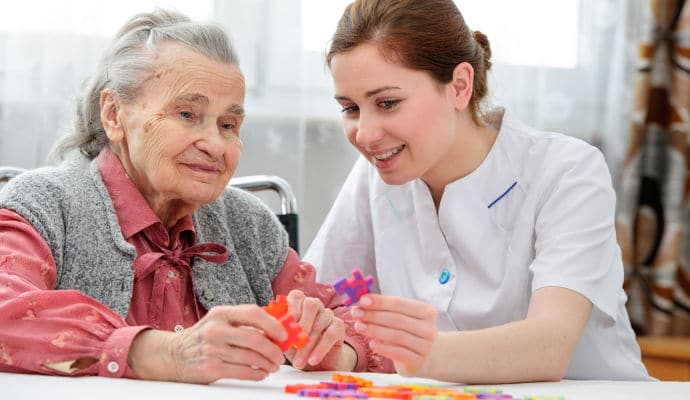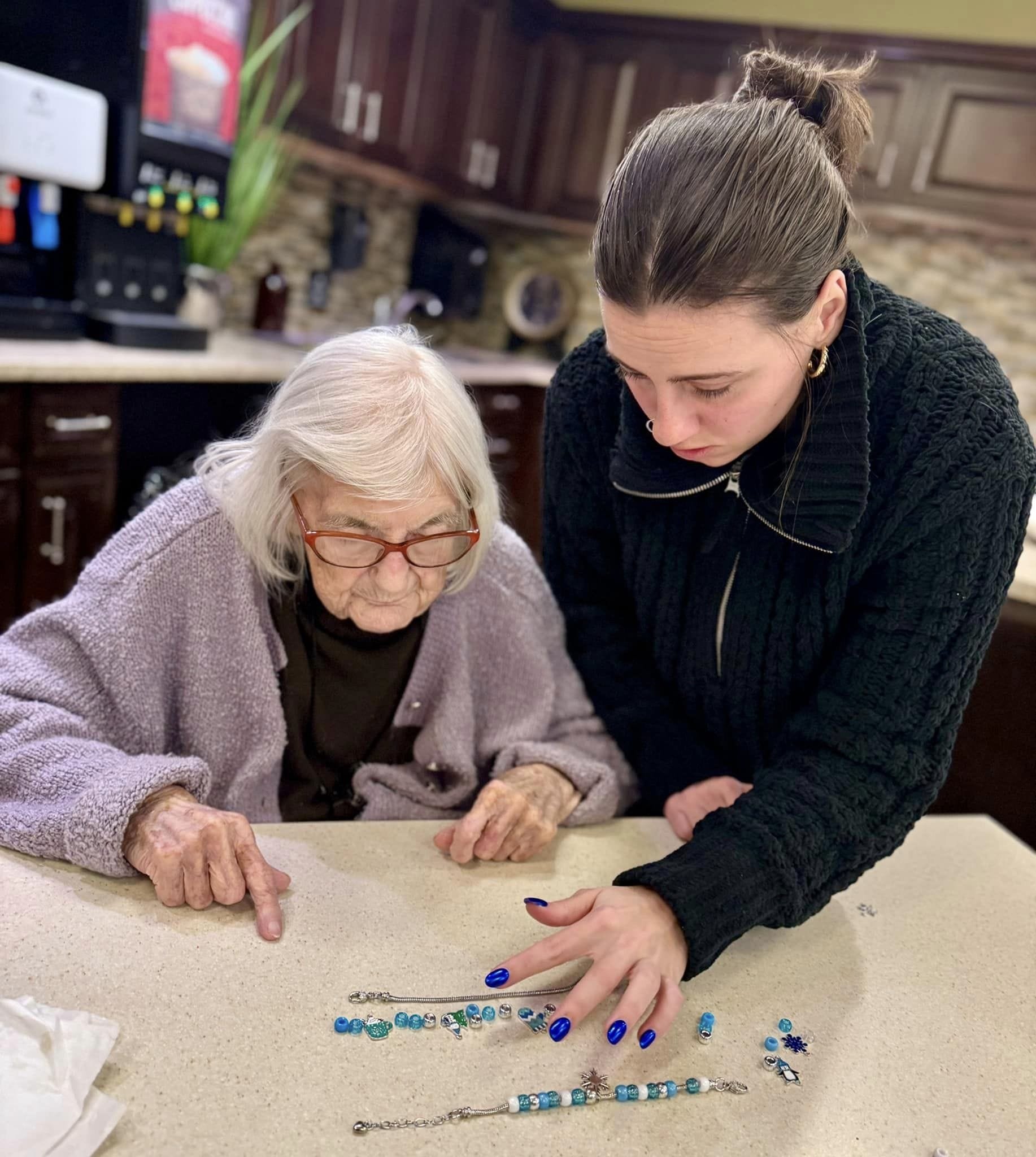Enhancing Lifestyle with Reliable Alzheimers Care Charlotte Programs
Enhancing Lifestyle with Reliable Alzheimers Care Charlotte Programs
Blog Article
Creating a Safe and Encouraging Setting for Alzheimer's Treatment
The development of a supportive and secure atmosphere for individuals with Alzheimer's is extremely important in boosting their quality of life. Checking out these diverse strategies can disclose crucial understandings right into reliable caregiving methods that may change the everyday experiences of both caregivers and clients.
Comprehending Alzheimer's Requirements
Frequently, individuals with Alzheimer's condition display a variety of requirements that require tailored approaches to care. As the condition proceeds, cognitive decrease materializes in various means, impacting memory, thinking, and also the ability to carry out daily tasks. Caregivers must identify these progressing requirements to supply ideal assistance and make certain a higher high quality of life for those affected.
One important facet of recognizing Alzheimer's requirements is recognizing the value of regular and familiarity. People often find comfort in well established patterns, which can minimize anxiety and confusion. Caretakers need to strive to create organized day-to-day routines that integrate meaningful tasks lined up with the person's interests and abilities.
Furthermore, effective interaction is paramount. People with Alzheimer's may have a hard time to reveal themselves or comprehend intricate language. Caretakers should utilize easy, clear language, use non-verbal signs, and practice energetic listening to cultivate understanding and connection.
Caretakers should encourage interaction in neighborhood tasks or family gatherings, advertising a sense of belonging and objective. Understanding these varied needs is necessary for creating an encouraging care atmosphere.
Designing a Safe Home
Developing a risk-free home for individuals with Alzheimer's condition is necessary to lessening risks and promoting self-reliance. Make sure that paths are well-lit and clear, as appropriate illumination reduces disorientation and improves flexibility.
Integrating adaptive functions is additionally important. Install grab bars in shower rooms and near staircases, and consider using non-slip mats in damp locations. Additionally, making use of contrasting shades for walls and floors can aid in differentiating areas, aiding to reduce confusion.
Familiarity is very important for people with Alzheimer's. Customizing the setting with acquainted objects and photographs can enhance a feeling of belonging and safety and security - Alzheimers Care Charlotte. It is additionally beneficial to have a marked location for daily activities, such as reading or crafting, which can supply structure to their day
Lastly, carrying out a safe outside area allows for secure exploration while getting in touch with nature. By attentively designing the home atmosphere, caregivers can substantially improve the top quality of life for people coping with Alzheimer's condition.
Enhancing Communication Abilities

Non-verbal communication, including facial expressions, gestures, and touch, plays a critical duty in sharing compassion and understanding. Maintaining eye call and a calm behavior can boost the comfort degree of the person, advertising a feeling of safety and security.
In addition, it is very important to practice energetic listening. This involves being completely existing, showing perseverance, and enabling the person to share themselves without disturbance. Rep might be essential; caretakers should be prepared to revisit inquiries or subjects, as people with Alzheimer's might deal with memory recall.
Furthermore, making use of visual help or hints, such as pictures or familiar items, can facilitate recognition and engagement. Eventually, improving communication abilities is about developing trust and producing a setting where people feel listened to, valued, and recognized, therefore improving their lifestyle.
Urging Social Communication
Promoting significant social interactions can greatly improve the wellness of individuals with Alzheimer's disease. Involving with others not only helps battle sensations of isolation yet also boosts cognitive function and psychological health and wellness. Structured social tasks, such as group video games, crafts and arts, or music therapy, create possibilities for locals to link with peers and caregivers, which can result in improved mood and lowered anxiousness.
Producing an inviting environment that motivates socialization is essential. This can be accomplished by setting up public rooms that help with communication, such as comfortable seating areas or activity rooms. In addition, incorporating culturally appropriate and familiar tasks can motivate and stimulate memories involvement, allowing individuals with Alzheimer's to really feel more linked to their previous experiences.
In addition, caretakers ought to be educated to recognize and promote social involvement among citizens. Simple motions, such as launching conversation or facilitating small group discussions, can help individuals feel valued and consisted of. Frequently arranged social events must be constant yet versatile, suiting differing levels of capability and passion. By focusing on social interaction, we can significantly improve the lives of those coping with Alzheimer's, fostering a feeling of area and belonging.
Sustaining Caretaker Well-being

To support caretakers, organizations need to offer routine training and academic resources to improve their understanding of Alzheimer's disease and caregiving methods. Offering accessibility to break treatment solutions permits caretakers to take required breaks, minimizing anxiety and exhaustion - Alzheimers Care Charlotte. Additionally, fostering a neighborhood via support system can facilitate psychological sharing and the exchange of useful recommendations amongst caretakers, producing a network of mutual assistance
Psychological health resources, such as therapy solutions, can additionally be vital in attending to the psychological toll caregiving can take. By focusing on caregiver wellness, we develop an even more lasting caregiving setting that not only benefits the caretakers themselves yet additionally boosts the total top quality of care obtained by people with Alzheimer's. Inevitably, sustaining caretakers is an important component in cultivating a effective and compassionate treatment setting.
Conclusion
To conclude, the development of a risk-free and encouraging environment for people with Alzheimer's is vital to improving their lifestyle. By focusing on safety and security through thoughtful design, promoting emotional well-being with familiar components, and advertising engagement via structured routines, caregivers can considerably affect the general experience of those impacted by this problem. Moreover, supporting caretaker health is essential, as it inevitably adds to a much more effective and compassionate treatment atmosphere.
Repeating might official site be needed; caretakers ought to be prepared to revisit subjects or concerns, as individuals with Alzheimer's might battle with memory recall.

Report this page